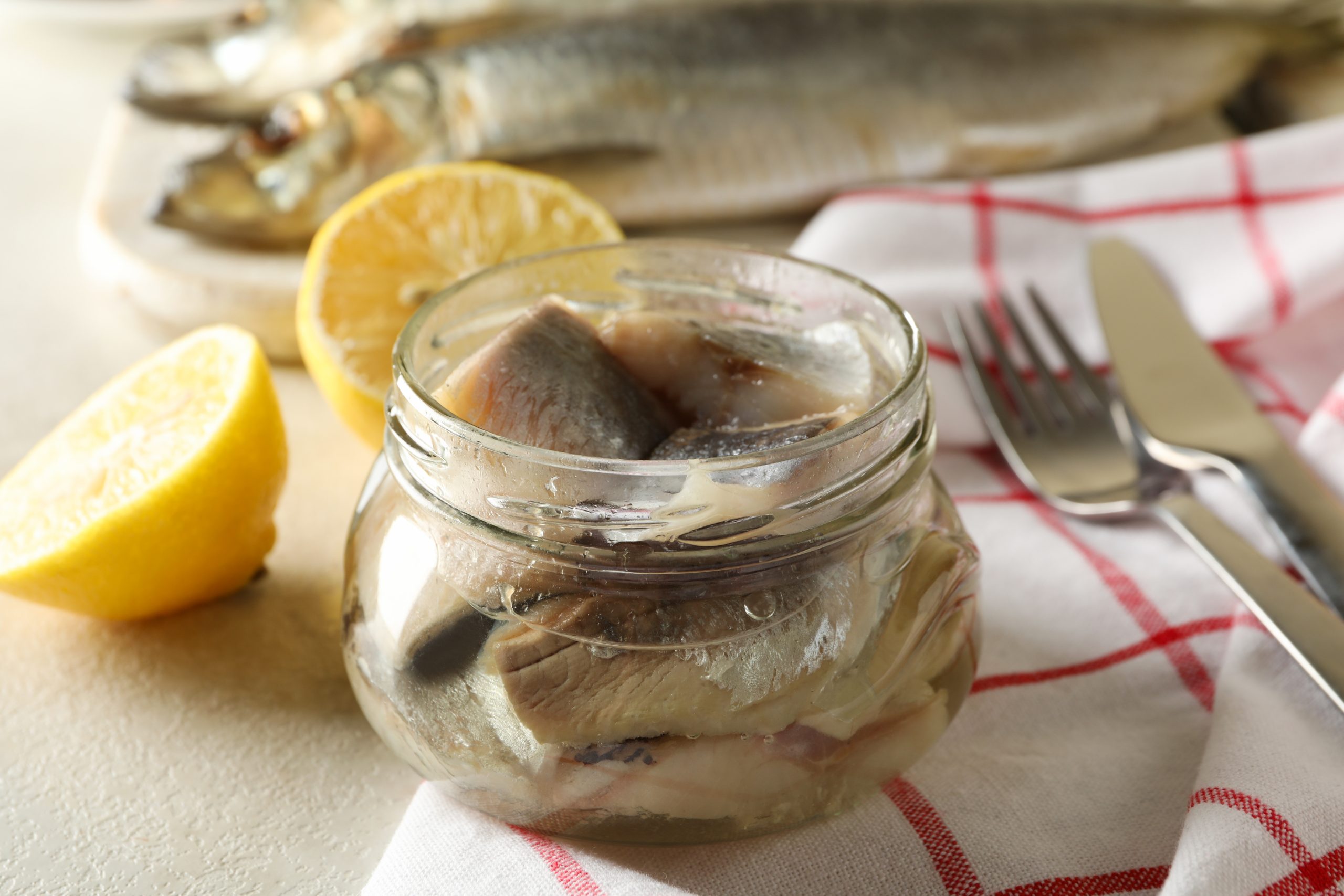Have you ever wondered if tinned fish could actually be beneficial for your skin? It’s an intriguing theory, and one that many people are curious about. The idea of improving your skin health simply by adding tinned fish to your diet sounds too good to be true, but could there be some truth to it? In this discussion, we will explore the potential impact of tinned fish on your skin and whether it can truly contribute to a healthier and more radiant complexion. So, if you’re eager to uncover the answer to this question and discover the potential benefits, let’s dive into the world of tinned fish and its impact on your skin.
Benefits of Tinned Fish for Skin Health
Including tinned fish in your diet can have numerous benefits for your skin health. Tinned fish, such as sardines, salmon, and mackerel, are rich in omega-3 fatty acids, which play a vital role in maintaining healthy skin. Omega-3 fatty acids have been shown to improve skin health by reducing inflammation and promoting hydration. These fatty acids also help to strengthen the skin barrier, protecting it from external damage.
Additionally, tinned fish contains antioxidants that can benefit your skin. Antioxidants help to neutralize harmful free radicals in the body, which can contribute to skin aging. By including tinned fish in your diet, you can provide your skin with a good source of antioxidants that support its overall health and appearance.
Furthermore, tinned fish is a great source of probiotics, which are beneficial bacteria that promote a healthy gut microbiome. A healthy gut microbiome is linked to improved skin health, as it helps to regulate inflammation and support proper digestion. By consuming tinned fish with probiotics, you can positively influence your skin’s condition.
Moreover, the impact of hydration on skin appearance should not be overlooked. Tinned fish, especially those packed in oil, can contribute to your daily water intake and help keep your skin hydrated. Hydrated skin appears plump, smooth, and radiant.
Omega-3 Fatty Acids in Tinned Fish
Tinned fish is a rich source of omega-3 fatty acids, which have numerous benefits for your overall health and skin. Omega-3 fats play a crucial role in maintaining skin health by reducing inflammation, protecting against UV damage, and promoting skin elasticity. They also help to regulate oil production, which can be beneficial for those with acne-prone skin. Tinned fish, such as salmon and sardines, are particularly high in omega-3s, making them an excellent choice for improving skin health.
In addition to omega-3s, tinned fish contains other nutrients that are beneficial for the skin. It is a good source of collagen, which helps to maintain skin elasticity and prevent wrinkles. Tinned fish also provides vitamin D, which is essential for skin health as it helps to regulate cell growth and repair damaged skin. The minerals found in tinned fish, such as zinc and selenium, act as antioxidants and protect the skin from oxidative stress.
When it comes to obtaining omega-3s for skin health, tinned fish is a superior choice compared to supplements. While supplements can provide omega-3s, they often lack the additional nutrients found in tinned fish that are beneficial for the skin. Furthermore, tinned fish is a whole food that is minimally processed, making it a more natural and bioavailable source of nutrients.
To summarize, incorporating tinned fish into your diet can provide a range of benefits for your skin. The omega-3 fatty acids, collagen, vitamin D, and antioxidants found in tinned fish contribute to improved skin health, including reduced inflammation, enhanced elasticity, and protection against UV damage. So, next time you’re looking for a skin-boosting food, consider reaching for a tin of fish instead of relying solely on supplements.
Minerals in Tinned Fish
Tinned fish is a rich source of essential minerals that are beneficial for your overall health and skin. Along with its high protein and omega-3 fatty acid content, tinned fish provides important minerals like zinc, copper, iodine, and selenium. These minerals play a crucial role in various bodily functions, including skin health. Zinc is critical for immune health, while iodine and selenium support healthy hormones. Tinned fish also contains energy-boosting B vitamins, which are essential for improving brain health and communication.
When shopping for tinned fish, it is important to check the ingredient list and choose options with minimal seasonings or salt added. Look for tinned fish packed in olive oil instead of vegetable oil, as it provides additional nutrients and flavor. Researching brands’ sourcing and fishing practices can help ensure quality and sustainability. Consider brands that test for mercury content, especially for tuna.
To enjoy tinned fish, there are numerous recipes to explore. Try mixing a tin of sardines into tuna salad for added flavor and nutrients, or make salmon cakes using a can of salmon, an egg, breadcrumbs, and seasoning. Incorporating a variety of tinned fish into your diet allows you to reap the benefits of their mineral content.
Proper storage is important to maintain the quality of tinned fish. Store them in a cool, dry place and consume before the expiration date. Once opened, transfer any leftover tinned fish to a covered container and refrigerate for up to 2 days. Consider buying tinned fish in bulk to save money and have a convenient protein source readily available.
Shopping Tips for Tinned Fish
When it comes to shopping for tinned fish, there are a few tips to keep in mind to ensure you choose the best options for your health and taste preferences. Here are five key considerations:
- Choose sustainable options: Look for tinned fish that is sourced responsibly and harvested using sustainable fishing practices. This helps protect marine ecosystems and ensures the long-term availability of fish.
- Compare different brands: Take the time to compare different brands of tinned fish. Look at factors such as the quality of the fish, the ingredients used, and any added seasonings or preservatives. Read reviews or seek recommendations from trusted sources.
- Consider health benefits: Tinned fish offers numerous health benefits, such as being high in protein, omega-3 fatty acids, and important vitamins and minerals. Consider which nutrients are most important to you and choose fish that align with your dietary needs.
- Incorporate into recipes: Tinned fish is incredibly versatile and can be used in a variety of recipes. Try adding it to salads, sandwiches, pasta dishes, or even as a topping for pizza. Get creative and experiment with different flavors and combinations.
- Check the nutritional value: Take a look at the nutritional label to understand the specific nutritional value of the tinned fish you’re considering. Look for options that are low in saturated fat and sodium, and high in protein and omega-3 fatty acids.
Enjoying Tinned Fish in Your Diet
To incorporate tinned fish into your diet and enjoy its benefits, try exploring different recipes that make delicious meals with these nutrient-packed seafood options. Tinned fish is incredibly versatile and can be used in a variety of dishes. You can make tuna salad, fish tacos, pasta with sardines, fish cakes, or even a Mediterranean-style salad. The possibilities are endless!
Not only is tinned fish convenient, but it is also a great source of protein. It contains important vitamins and minerals like vitamin D, calcium, and iron. Tinned fish is also rich in omega-3 fatty acids, which are essential for brain function and overall health.
When choosing tinned fish, opt for varieties packed in water or olive oil instead of heavy sauces or brine. Check the label for any added preservatives or artificial ingredients. It’s also important to store tinned fish in a cool, dry place and consume it before the expiration date. Once opened, transfer any leftovers to a covered container and refrigerate them for up to 2 days.
In addition to being used in recipes, tinned fish can also be enjoyed as a quick and convenient snack. You can eat it straight out of the package or mix it with mayo, mustard, and seasonings for a flavorful spread.
Incorporating tinned fish into your diet is a simple and delicious way to enjoy its many benefits. So, get creative in the kitchen and start exploring the wonderful world of tinned fish recipes!
Other Fish Options for Skin Health
Salmon, mackerel, and anchovies are other fish options that are rich in omega-3 fatty acids and can benefit skin health. If you’re a vegetarian, there are alternatives that can provide skin-healthy nutrients. Nuts and seeds like walnuts, chia seeds, flaxseeds, and hempseeds are great sources of omega-3 fatty acids. You can also incorporate eggs (if not allergic), olive oil, and avocados into your diet for skin-boosting nutrients.
In addition to including these fish and plant-based options, it’s important to avoid unhealthy foods that can negatively impact your skin. This means steering clear of sugar and processed foods, as well as potential allergens that may cause skin reactions.
Importance of Nutrition for Skin Health
Nutrition plays a pivotal role in achieving and maintaining healthy skin. The food you consume can have a significant impact on the health and appearance of your skin. When it comes to skin health, tinned fish can be a beneficial addition to your diet. Tinned fish, such as sardines, salmon, and mackerel, are rich in omega-3 fatty acids, which can improve skin health by reducing inflammation and promoting hydration. These fish also provide essential minerals like zinc, selenium, and collagen, which are beneficial for maintaining healthy skin.
If you’re considering incorporating tinned fish into your diet, it’s important to choose the right products. Look for tinned fish packed in water or olive oil, as these options are healthier than those packed in heavy sauces or brine. Additionally, consider brands that prioritize sustainable fishing practices and test for mercury content, especially for tuna.
For those who follow a vegetarian diet, there are alternatives to tinned fish that can also provide skin-boosting nutrients. Nuts and seeds like walnuts, chia seeds, flaxseeds, and hempseeds are rich in omega-3 fatty acids. Eggs, olive oil, and avocados are also good sources of skin-healthy nutrients.
Incorporating tinned fish or vegetarian alternatives into your diet, along with a balanced and nutritious eating plan, can contribute to healthier skin. Remember to consult with a dermatologist or nutritionist for personalized advice on improving skin health through diet and lifestyle changes.


